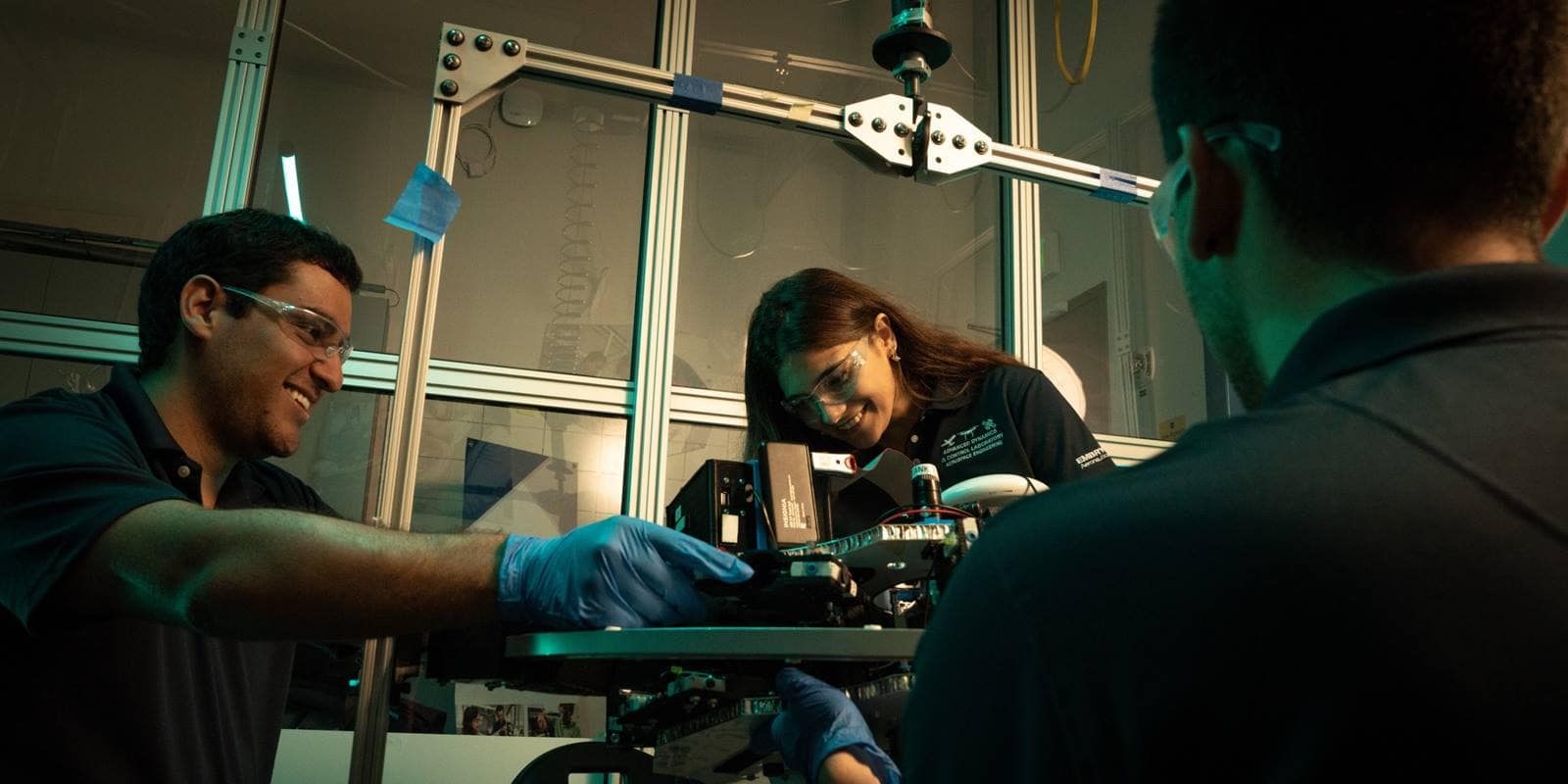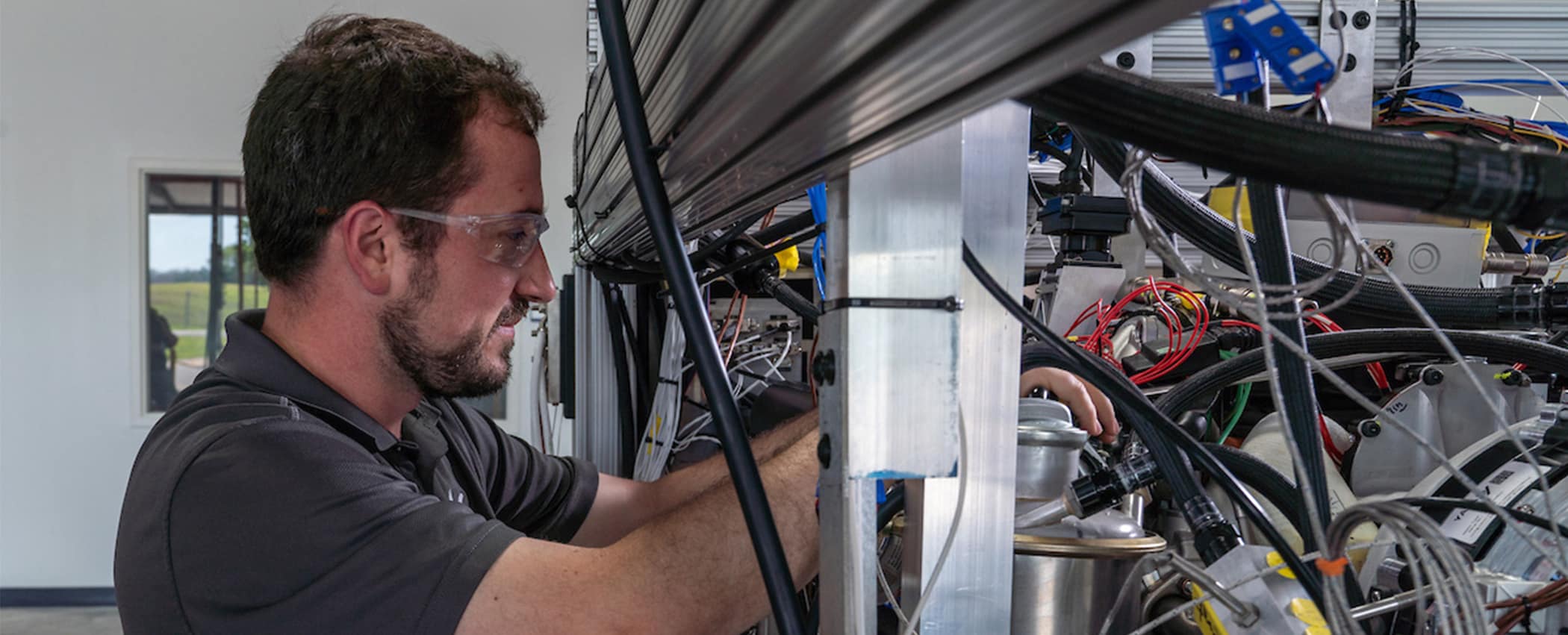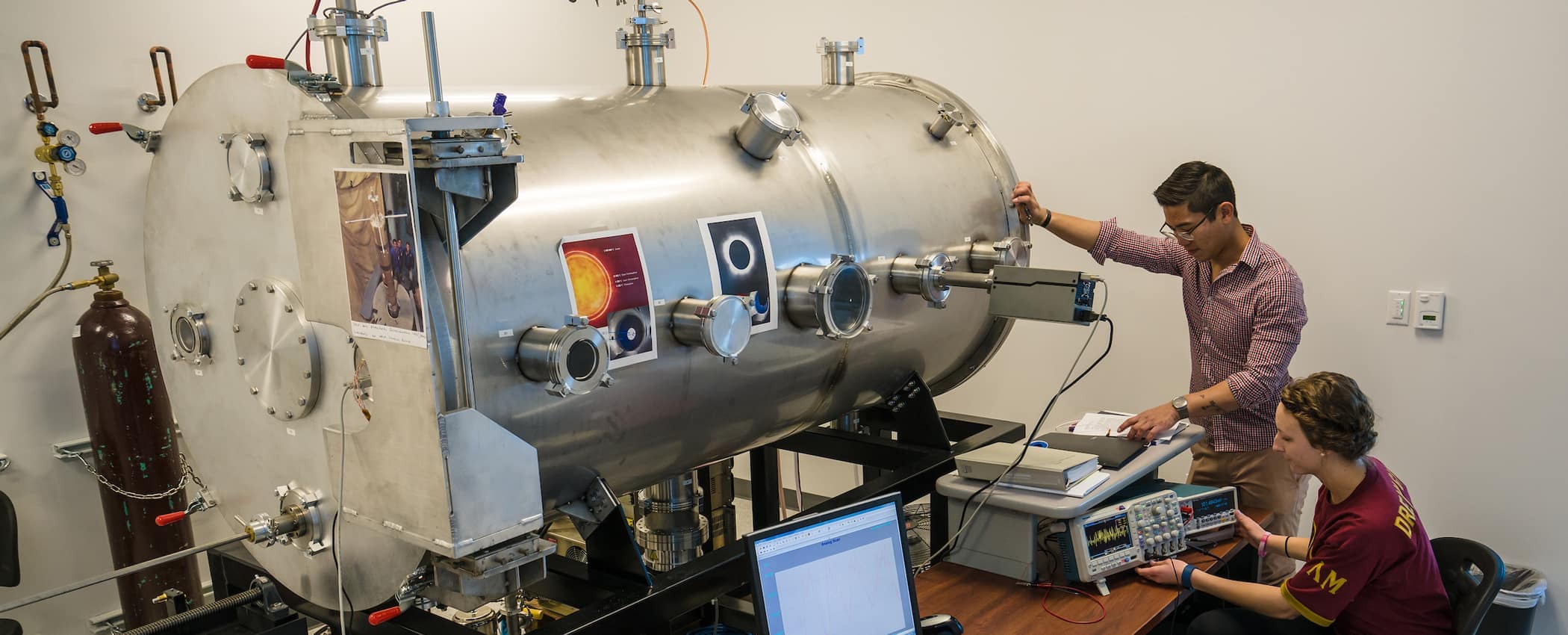
Master of Science in
Aerospace Engineering
The Master of Science in Aerospace Engineering program uses theoretical and practical training to help graduates learn spacecraft and aircraft design.
About the Master of Science in Aerospace Engineering
As a recognized leader in aviation and aerospace education, Embry‑Riddle offers a Master of Science in Aerospace Engineering program that prepares graduates for a successful career in satellite and aircraft design, space exploration and more.
This graduate degree is designed for students who already have a degree in Aerospace Engineering or a related engineering field. The curriculum provides a favorable balance of practical and theoretical training. Students augment their engineering and science background with studies in computational fluid dynamics, aeroacoustics modeling, rotorcraft aerodynamics, flow control, air-breathing hypersonic and rocket propulsion and autonomous uncrewed aircraft, as well as other topics in aerospace engineering.
Student Learning Outcomes
Opportunities available to you while receiving a M.S. in Aerospace Engineering:
- Flexibility and rigor to accommodate both full-time students and working professionals' needs
- Specialty course and research opportunities for graduate students to shape their degree
- Gain first-hand knowledge, enthusiasm and guidance from industry-leading faculty
- Research areas including computational fluid dynamics, aeroacoustic modeling, guidance, navigation and control, computational structural mechanics and design optimization
- Assist in paving the way in aerospace research and development
Aerospace Engineering Career Opportunities
Careers and Employers
Master’s students graduating from Embry-Riddle’s Aerospace Engineering degree program enjoy an extremely high 93% placement rate within one year of graduation. Many graduates transition into careers with companies such as SpaceX, NASA, the U.S. Department of Defense, Delta Air Lines and Gulfstream Aerospace.
Aerospace Engineering graduates tend to enter into the aerospace industry in positions such as avionics engineering, aeronautical engineering, aerospace system analysis and performance engineering.
Aerospace Engineering Salary Information
As of 2023, students graduating with a Master of Science in Aerospace Engineering tend to receive competitive salaries, with an average income of $95,000 annually.
DETAILS
This offering is available at the following campuses. Select a campus to learn more.





